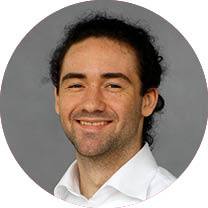Data infrastructure, or the ability to gather both real time and general information about the city like demographics or traffic data, is an important priority for Sugar Land if it wants to remain competitive, said Chris Steubing, director of special projects at Sugar Land.
“When you’re a city that’s expanding quickly, data isn’t all that important,” he said. “But when you get to where we are, you’ve got to start thinking ahead, about having that information to keep service levels high.”
Take emergency vehicles for example. Steubing pointed out that, with a strong real-time data set, the city could potentially help ambulances and police vehicles get to their destinations faster by preplanning the driver’s route and subsequently diverting or “cooling” traffic on the way to the scene of the crime or hospital.
Other, less exciting projects include project and service request prioritization. With stronger data acquisition and usage, the city can better identify priority projects and schedule them for completion at a reasonable rate. Over the past few years, the city has reduced its service request response time from two weeks to just over 40 hours, Steubing pointed out.
This is evident with the city's recent approval of $1.8 million to address sidewalk repair concerns in the Greatwood and New Territory areas. The injection of funding has allowed the city to start work on the backlog of service requests, but intelligent data usage and a strong infrastructure helped the city identify key areas of improvement and make a plan.
The city remains somewhat fractured in terms of data usage, however; according to Steuben, several of the city’s departments rely on dozens of software applications, not all of which talk to each other.
“It’s really easy for our data to get put into silos,” he said. “That data that we need might not get shared like it needs to.”
Moving forward, the city intends to continue developing strategies that bridge the divide between departments—and residents.
External data transparency for residents and businesses was also a highlight of the presentation, and Steuben reiterated the city’s dedication to transparency while also pointing out that businesses are more likely to settle in Sugar Land if they have more data to work with.
Ultimately, the city’s focus on becoming a “smart city,” or one that relies on real-time data—and lots of it—will help to improve the day-to-day lives of residents and make large-scale projects more effective, Steubing said.
“These projects aren’t sexy,” said Kylie Jackson, assistant director for the Sugar Land Department of Innovation. “Projects that focus on data are never going to capture the public attention. But they make the big flashy projects that everyone sees possible.”





